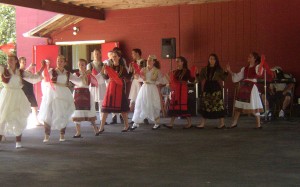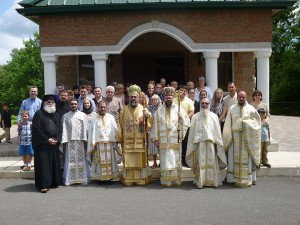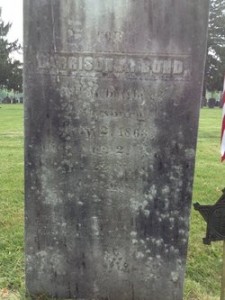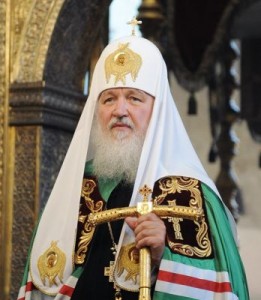Each year, around the end of June, we start to dust off all of the supplies and things that will be needed for our Annual Romanian Festival. For about the last 89 years, St. Michael Romanian Orthodox Church in Southbridge, Massachusetts has put on this festival and each year its gets better.
Most of the parishioners at St. Michael, as well as the two other Orthodox Churches here in town, worked for the American Optical Company. Each summer, starting on the 3rd Sunday of July, the plant would close and all of the employees would take a week’s vacation. This was the Sunday chosen for the Festival. Folks would come and enjoy great food, music, dancing, and fellowship, and then would take off on vacation.
The plant closed in the 1980’s and the last of the July vacations took place but we continue the tradition of the Festival and it still brings people together for the same reasons that it used to.
We are a small parish, but there is something about the weeks leading up to the festival that seem to bring us together. It is a lot of work to pull this and we start planning early in the year, but the weeks prior the work begins at a fever pitch. Tables and chairs need to be removed from the barn and cleaned, the floors need to be swept, the refrigeration needs to checked and a thousand other details need to be attended to.
Then the day arrives. We begin, as all Orthodox festivals should begin, with the Divine Liturgy. Several years ago we decided to share this Liturgy with our friends from St. Nicholas Albanian Orthodox Church and we attend their Liturgy for their Festival. This serves two purposes, the first is it brings the Orthodox of Southbridge together to celebrate the real Festival, that of the Resurrection and second it fills the Church on a day when most of the “regulars” have to be busy getting ready in the Church yard. This is an added blessing.
As the noon hour approaches, and the smell of roasting lamb is filling the air, we all hold our breaths as the people start to arrive. Then come in pairs or in singles and before long, the Church yard is teaming with people, old friends and new friends, and the day had begun.
People from all over Town, and this year they came from as far away as Canada, sit and enjoy the great music and food and conversation. We only see some of these folks this time of year, since they have moved away, and this is a time to catch up on all of the goings on in their families. People just spending time with each other, under the shadow of God’s Holy Church.
As the day winds down, and the fire begins to die, people say their good byes and promise to stay in touch. They all depart to their own homes and the clean-up begins. As we started to put all of the things away that are needed to make this happen, I reflected on the number of people who came this year and the conversations that we had. Some folks are really hurting this year health wise and because of the economy, and Festival Day is a time for them to forget all of that and just enjoy the time. I am grateful that humidity broke the night before and it was a clear and warm day, but very low humidity.
So we say good bye to the festival for another year, and we start to plan the one for next year, our 90th. Thanks be to God that St. Michaels has been here to bring, not only the Good News of Jesus Christ to the Town, but also to bring a time of fellowship. I pray that we are here for many years to come.






